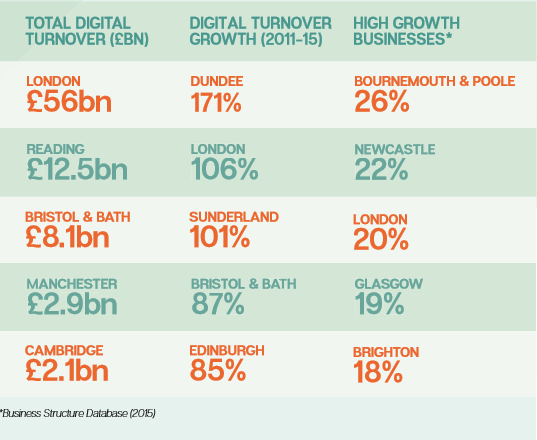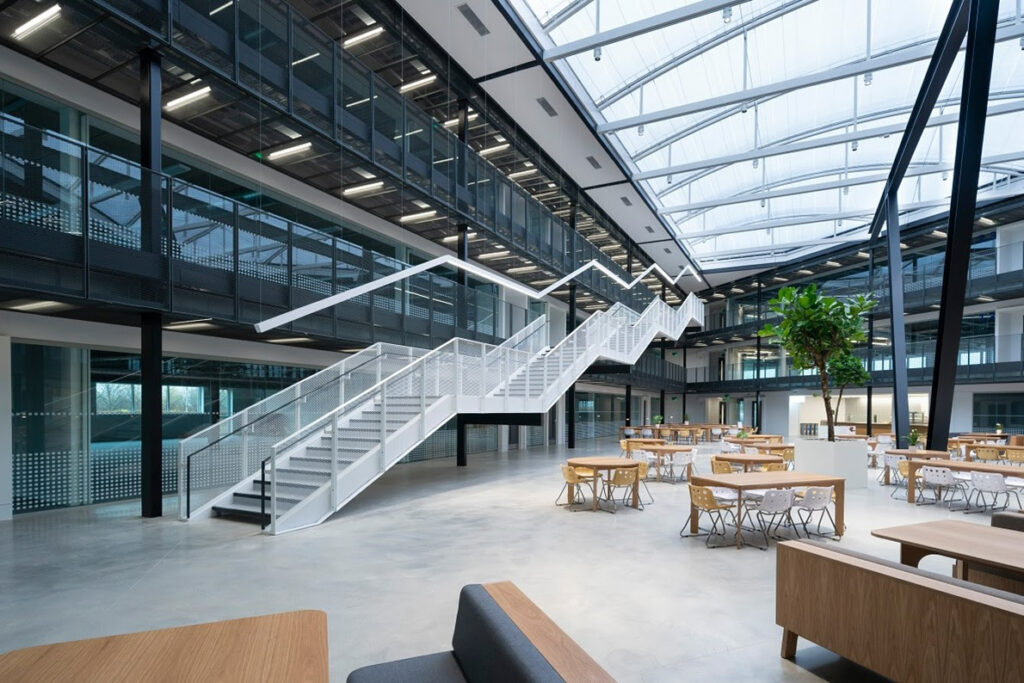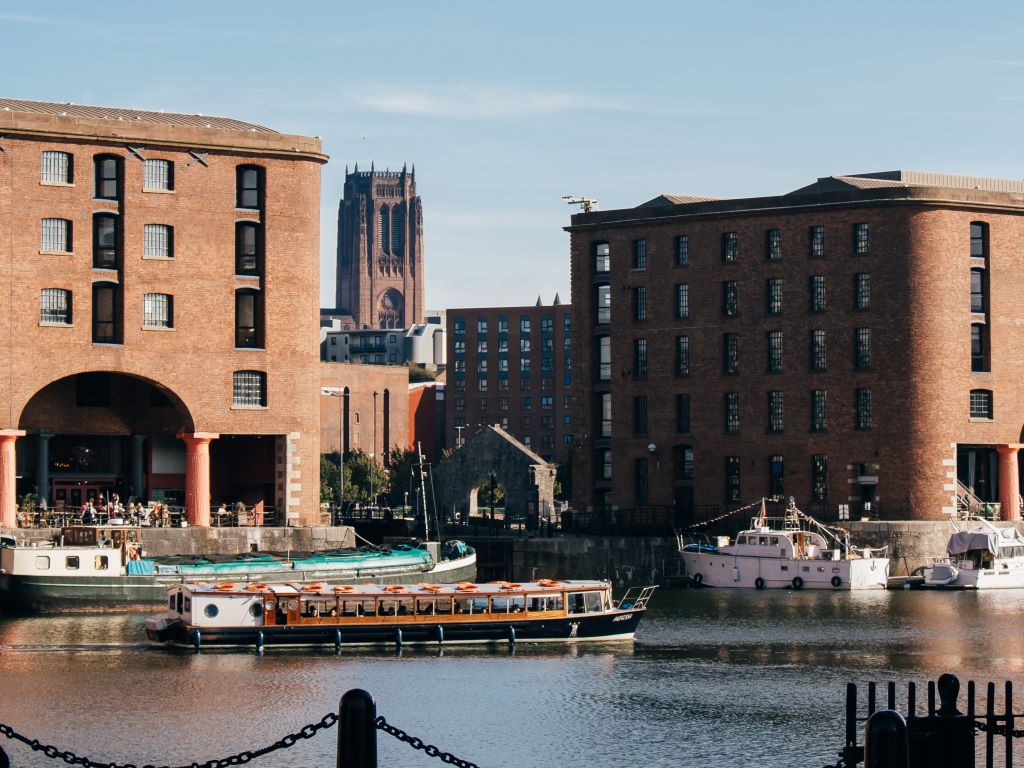Tech study finds NW playing catch-up
 Unsurprisingly, Manchester is leading the North West in the tech industry, according to the Tech Nation 2017 report published this week, with £2.9bn of digital turnover annually. But why do Reading, Bristol and Bath have much larger digital turnovers than Manchester, asks Laura Storey.
Unsurprisingly, Manchester is leading the North West in the tech industry, according to the Tech Nation 2017 report published this week, with £2.9bn of digital turnover annually. But why do Reading, Bristol and Bath have much larger digital turnovers than Manchester, asks Laura Storey.
The tech sector provides 60,000 jobs to Manchester’s economy, with an average salary of £47,349, almost £15,000 more than a non-digital average salary, according to Tech City UK, an organisation launched by the government to accelerate digital growth in the UK. However, Manchester’s total digital turnover still lags cities to the South.
Reading had a total digital salary of £12.5bn in 2015 and Bristol and Bath a combined £8.1bn. London stormed ahead to top place with a total digital turnover of £56bn, the report’s authors describing it as “Europe’s tech city.” The report adds: “London remains a major centre for investment, attracting £2.2bn in 2016, around £1bn more than its two closest competitors, Amsterdam and Paris.” It is no surprise London is still described as a tech paradise, home to a third of Europe’s ‘tech unicorns’, $1bn-valued businesses. However, the report states that “in 2016, 68% of digital tech investment, some £4.6bn, was recorded outside the capital, testifying to a diversifying investment landscape.”
Liverpool is one of the cities benefiting from this investment, as gaming, virtual reality and digital agencies thrive in areas once filled with derelict warehouses, but not featuring in the top tables by the measures in the report. The city had a 29% increase in the number of digital tech businesses from 2011-2015 and reported a growth of 22% in those four years. In 2015 Liverpool had a tech birth rate, a measurement of new companies as a proportion of all businesses in an area, which exceeded Manchester’s at 16.8% and 15.6% respectively. Despite the growth of the tech industry in both Liverpool and Manchester, the cities are still eclipsed by those in the south.
Why Reading?
With multinationals such as Microsoft, Oracle and Cisco basing their headquarters in Reading, the city has strong roots in the tech industry. Close to, but cheaper than London, the town continues to attract international companies.
Richard Pursey, chief executive and founder of SafeToNet describes what attracted him to Reading: “Our Reading location has helped us to develop crucial partnerships with the likes of Reading University, Cisco and EY. Thanks to the high-speed rail network, we have access to all corners of the country while avoiding London’s high rents, freeing up more money for development.” With further rail improvement currently being considered, Reading’s tech industry is likely to speed up.
Why Bristol and Bath?
The report compiled the result from both Bristol and Bath into one, making it slightly unfair to compare directly against Manchester. However there is no doubt that the tech industry in both cities is booming. Their digital turnover has grown by 87% in just four years.
It’s clear that collaboration between tech companies contributed to Bristol and Bath’s success, the report comments that “within the UK last year, the greatest number of meet-ups outside London happened in Bristol and Bath.” Similar to Reading, multinational corporations such as IBM have bases in the cities, allowing their tech industries to network and profit from their competitors’ expertise.
Reading’s universities also provide the tech industry with highly skilled staff and the report adds “the Bristol Robotics Laboratory is now the UK’s leading academic centre for robotics research.” Tom Carter, co-founder and chief of technology for Ultrahaptics, says “being based in Bristol, we have access to a large pool of leading digital tech talent. We also have close links to the strong ecosystem, having originally developed within the University of Bristol and SETsquared, the global #1 tech incubator.”
Why Bournemouth and Poole?
Manchester came fourth when the report compared digital turnover, however, the city didn’t even make it into the top five when the proportion of high growth digital businesses were compared. Bournemouth and Poole snagged the top spot, with 26% of their digital businesses classed as high growth.
Their success was based on “strong graduate talent from the highly acclaimed National Centre for Computer Animation and Visual Effects at the University of Bournemouth,” according to the report. Ambitious and creative start-ups are embracing new co-working spaces within the cities, such as THIS Group which has opened a 24/7 creative hub.
Tom Quay, chief executive of Base, a tech consultancy, commented: “Bournemouth is a vibrant coastal town with easy access to both London by train and Manchester by plane. This provides a combination of beach living with the infrastructure needed to get in front of customers. The talent pool here is mature too, both from the university and those looking for a better work life balance.”
Bournemouth and Poole’s growth is set to grow further with the report revealing that “Ordnance Survey and Bournemouth Council are testing a 5G mapping and planning tool in the town. Improved connectivity could unlock huge potential across the city.”
Why is the tech industry not more prominent Manchester?
Manchester’s location and lack of tech industry roots are disadvantages with only 53% of tech community members describing transport infrastructure as good. This makes it harder for the city’s tech industry to collaborate with businesses in more established tech cities.
Local start-ups also cite staffing issues, 69% report a lack of supply of highly skilled workers. However, Mi-Idea, a new facility for tech start-ups and entrepreneurs is due to open soon, along with the £235m Sir Henry Royce Institute for Advanced Materials Research & Innovation which is expected to open in 2019. David Levine, chief executive of Digital Bridge, which allows you to visualise home decoration products in situ, comments: “Manchester is one of the world’s leading research centres for computer vision and machine learning with a great talent pool coming out of the universities.”
With these facilities and graduates from top universities, the city should soon benefit from a good supply of highly skilled workers.
For Bournemouth and Poole, one of the main attractions to tech industries was a higher quality of life than London; 75% of the tech community rated Manchester’s quality of life as good, higher than London’s 59%. Manchester is also a lot cheaper than London, Levine added “costs of living are on average 42% cheaper than those in London. Yet we can get to the capital in just two hours.”
Perhaps with HS2 in the pipeline and 85% of the tech community optimistic about digital growth in the city, Manchester’s tech boom won’t be far away.





Worth mentioning the £300m Manchester Engineering Campus Development (MECD) 2020 and proposed £30m MMU International Screen School
By name
Shocking news other cities are better than us! Quick call George Osbourne to get us upgraded..hang on a minute he’s working in London now selling papers, oh eck the report must be wrong, surely we are number one?
By Man on bicycle
Is this based on Manchester district or Greater Manchester?
By Adam
What Manchester not even second best, must be a mistake cant they count again?
By Emperor of the North
Thought Manchester was the second biggest digital economy in Europe after London? Also thought Trafford and Salford were quite high ranking?
By Elephant
One of the problems here is inadequate schools. Some parts of GM have education attainment that is to be kind embarrassing. This needs urgent attention. The level of articulacy from our young people here,compared to the South,is very noticeable to someone like myself,who has lived in both.
By Elephant
It’s for GM, showing growth of 70% 2014 to 2015. Liverpool as a city returned growth of 119% for same period, second only to Bournemouth and Poole which returned a rate of 212%. I know it’s a % based on maybe lower figures, but PNW is very remiss not to have mentioned Liverpool’s growth, bad reporting.
By Emperor of the North
There are effectively no computer animation courses in Manchester . The best work is being done at Bournmouth and Hertfordshire universities , both with very strong industry links . Manchester has got a lot to do to catch them up .
By Graham wilson
Graham – have you looked at Futureworks?
By Ned Stark
I see huge movements in Liverpool , Funny none are ever shown on this Manchester based site , it’s worse than Granada reports.
By PAT